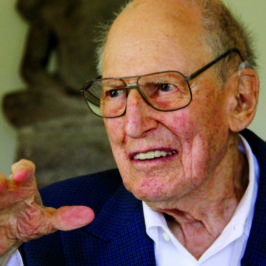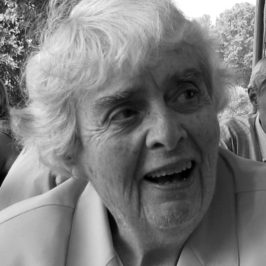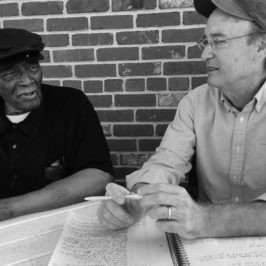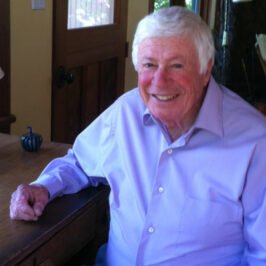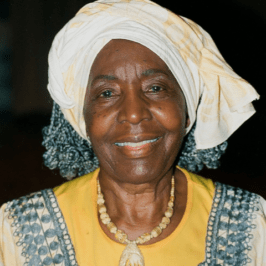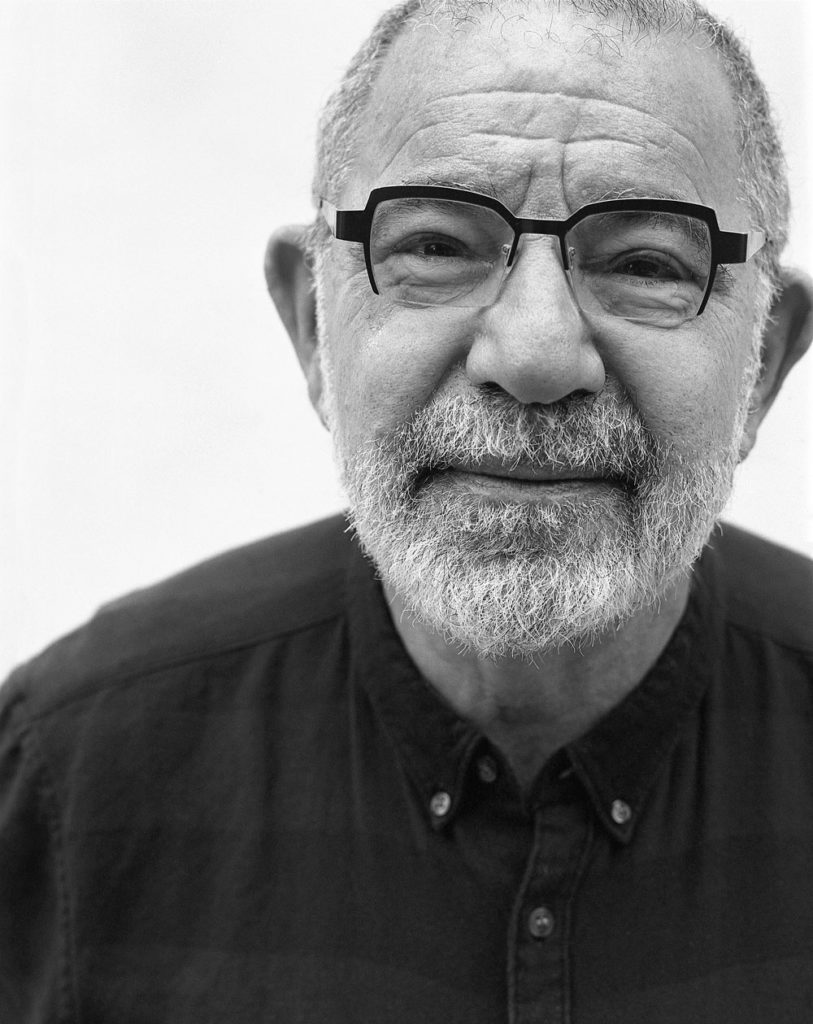
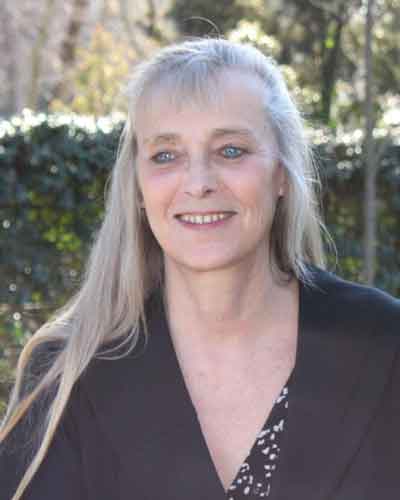
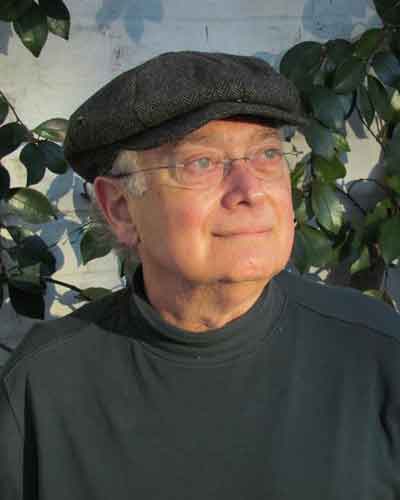
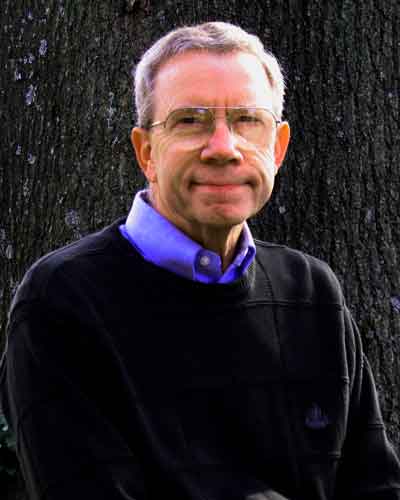
War and chance, featuring pieces by David Bergman, Diane Oatley, Gary Stein and J. Philip Hysell.
6 minutes
TRANSCRIPT
Memorial Day’s coming up. It’s the day we Americans honor the memories of those members of the military that lost their lives. It’s been around since 1868. On this edition of Burning Bright, three pieces at least tangentially related.
First, David Bergman’s poem “The Great War Poets.”
We can be sure that Homer didn’t see much action
for all his vivid close-ups of the battlefield.
Only a blind man could sing hymns to gore.
The Great War poets always hated war, never
sure of coming up with a good rhyme before
the mustard gas might blind them. My father
who fought in the four invasions—North
Africa, Sicily, Italy, and D-Day—never
talked about his wounds, never told us why
he earned a Silver Star, only about his
disappointment in Tunis when his first
package from home arrived and he received
not the food he dreamed of
but a hardbound copy of War and Peace,
whose weight he slowly reduced by ripping
out each page as he read it, leaving the last in
some ditch near Messina.
“The Great War Poets” by David Bergman from his book Plain Sight.
Diane Oatley wrote a piece in Passager’s Trauma issue about how unprocessed ancestral trauma is passed from mother to daughter. Here’s an excerpt from her memoir “Bomb Proof.”
On one of my visits, my mother tells me a war story. During the German occupation of Norway in the Second World War, women, the elderly, and children were initially ordered to evacuate Oslo. My mother, who was 12 years old at the time, her brother, and their mother fled to the home of a relative living in the countryside a few hours north of the city. The train journey was without incident, but no sooner had they arrived and entered the house than the railway tracks were bombed. They dove under the dining room table as all the windows in the house shattered inward, an ice storm of broken glass showering across the floor.
When the dust settled, they fled yet again, seeking refuge in a cabin in the mountains. As they were climbing the stony slope, fighter planes dove through the sky, releasing a barrage of gunfire. They cowered behind rocks on the hillside until the fighter planes departed and they could safely continue on their way.
An excerpt from Diane Oatley’s essay “Bomb Proof.”
Gary Stein said, “My maternal grandfather, an Italian immigrant fighting for America, was rescued as described to make my eventual birth possible. To be alive is a matter of chance.” Here’s Gary’s poem “Chance.”
In 1918 after a German grenade planted
my grandfather head-first in the Argonne
like a sapling that might grow forever,
a short mustached-man in a helmet
pulled him feet first from the soft earth
the way a farmer births a breeched calf.
The soldier is as dead now as my grandfather,
but without that Yank’s strong arms
a southern doctor could not have pulled me
from my mother thirty years later,
blue and frail, in the nick of time,
so I enlist in a line of lucky lads
who, unlike my miscarried brother, beat
the odds to hear an unknown hero’s story
and take a chance on all that light and air allows.
From Passager’s Issue #76, “Chance” by Gary Stein.
Our loved ones in the military sometimes die; their remains are returned to their families to bury or cremate. Here are excerpts from J. Philip Hysell’s story about one family’s experience, albeit not with a veteran: “Maw Bailey’s Final Resting Place.”
When a loved one died back in the city, he was given the proper burial, usually by Rafferty’s Funeral Home, in a nice casket with flowers . . . However, this was not the Gimlet Hollow method . . . Most Gimlet Hollow families preferred to bury their own.
Dad and Corny walked back to the Jeep to get the picks and shovels, while Fred and I began to pull the weeds and vines from the ground where we were going to dig the grave . . .
Fred and I had gotten the worst of the undergrowth removed when Dad and Corny arrived with the tools. Corny decided it would be best to start with the picks to loosen up the soil first and then apply the shovels once the first foot or so was broken up. After approximately half an hour of very heavy battering of this hard ground with their picks, Dad and Corny took a breather to take a smoke and let Fred and me try our shovels. It soon became very apparent that going down anywhere near six feet at this rate was going to take us well beyond the daylight. Fred, for one, didn’t relish the idea of digging in an isolated cemetery after dark. We had not gone down more than the first two-and-one-half feet when Fred stated the obvious. “Well, boys, I figure we’ve come to a good place to bring in some of that there dynamite.”
Excerpts from “Maw Bailey’s Final Resting Place” by J. Philip Hysell from Passager Issue 45.
To buy David Bergman’s book Plain Sight, subscribe to, or learn more about Passager and its commitment to writers over 50, go to passagerbooks.com. You can download Burning Bright from Spotify, Apple and Google Podcasts and various other podcast apps.
For Kendra, Mary, Christine, Rosanne, and the rest of the Passager staff, I’m Jon Shorr.


